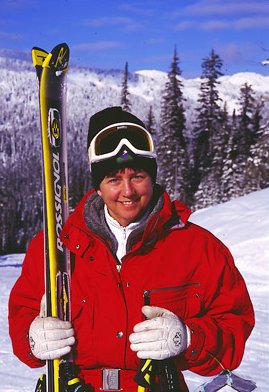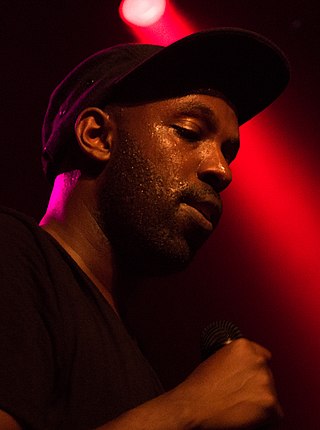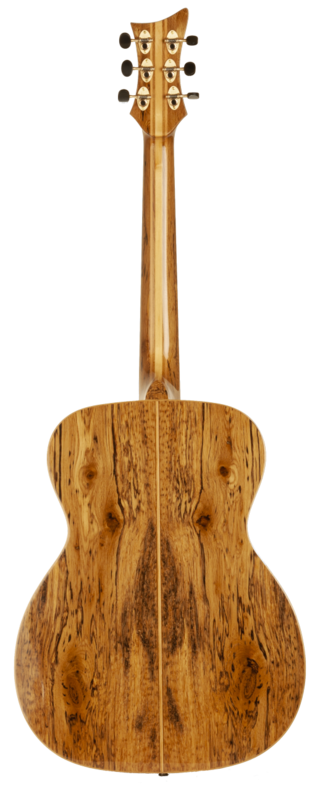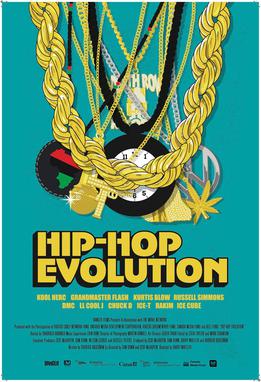Related Research Articles

Nancy Catherine Greene Raine is a former Canadian Senator for British Columbia and an Olympic alpine champion voted as Canada's Female Athlete of the 20th Century. She was born in Ottawa, Ontario, Canada. Greene Raine won the giant slalom in the 1968 Winter Olympics in Grenoble, France.

The Kainai Nation is a First Nations band government in southern Alberta, Canada, with a population of 12,965 members in 2024, up from 11,791 in December 2013.

CBC Radio 3 is a Canadian digital radio station operated by the Canadian Broadcasting Corporation, which plays a relatively freeform mix of indie rock, indie pop, alternative hip hop, folk, country and electronic music.

CJRT-FM is a Canadian public radio station and charitable arts organization in Toronto, Ontario, known as JAZZ.FM91. The studios are on Pardee Avenue in the Liberty Village neighbourhood of Toronto. The station describes itself as Canada's only 24-hour all-jazz radio station, with evening and weekend specialty shows devoted to jazz-influenced R&B, blues, big band and Latin jazz. It has a professional staff of on-air hosts, with more than 90 volunteers assisting. It is listener-supported and holds periodic on-air fundraisers, seeking donations to support the station.
Raphael "Ralph" Benmergui is a Canadian television and radio personality, a writer, an ordained spiritual director, and a strategic advisor in political, environmental, and academic realms.

John Beckwith was a Canadian composer, writer, pianist, teacher, and administrator.

Elliott Brood is a three-piece Canadian alternative country band formed in Toronto in 2002. It consists of Mark Sasso on lead vocals, guitar, banjo, ukulele, harmonica and kazoo, Casey Laforet on guitar, lead vocals, backing vocals, bass pedals, keys and ukulele, and Stephen Pitkin on percussion, sampler and backing vocals. The band's style has been categorized as "death country", "frontier rock" or "revival music".

Harry Manx is a Canadian musician who blends blues rock, folk rock, and Hindustani classical music. His official website describes his music as being a "blend Indian folk melodies with slide guitar blues, add a sprinkle of gospel and some compelling grooves and you'll get Manx's unique "mysticssippi" flavour." Manx plays the slide guitar, harmonica, six-string banjo, mohan veena and Ellis stomp box. He studied for five years in India with Vishwa Mohan Bhatt. Bhatt is the inventor of the 20-stringed mohan veena, which has become Manx's signature instrument. He has released twelve albums in twelve years, and has his own record label Dog My Cats Records. He has received much recognition and many awards, including: seven Maple Blues Awards, six Juno nominations, the Canadian Folk Music Award in 2005 for Best Solo Artist, and CBC Radio’s "Great Canadian Blues Award" in 2007.
MV Christmas Seal was a Canadian medical ship operating in Newfoundland from 1947 until 1970. Formerly a United States air-sea rescue vessel during World War II, she later served as an oceanographic research platform before sinking in 1976.

Shadrach Kabango, known professionally as Shad or Shad K, is a Canadian rapper and broadcaster. Beginning his career in 2005, has released seven studio albums and three extended plays. He won a Juno Award for Rap Recording of the Year in 2011 and five of his albums have been shortlisted for the Polaris Music Prize, the most short-list nominations of any artist in the prize's history. In 2013, CBC Music named Shad the second-greatest Canadian rapper of all time. Shad hosted Q on CBC Radio One from 2015 to 2016, and hosts the International Emmy and Peabody Award-winning documentary series Hip-Hop Evolution on HBO Canada and Netflix.

Clement Virgo is a Canadian film and television writer, producer and director who runs the production company, Conquering Lion Pictures, with producer Damon D'Oliveira. Virgo is best known for co-writing and directing an adaptation of the novel by Canadian writer Lawrence Hill, The Book of Negroes (2015), a six-part miniseries that aired on CBC Television in Canada and BET in the United States.

Fan Tan Alley is an alley in the Chinatown neighbourhood of Victoria, British Columbia, Canada that is known for being the narrowest commercial street in North America, being less than 0.9 m (3.0 ft) wide at its narrowest point. It runs south from Fisgard Avenue to Pandora Avenue at the block between Government Street and Store Street. Named after the Chinese gambling game Fan-Tan, the alley was originally well known for opium factories that produced opium until it was made illegal in 1908. The alley became known for gambling and got its Fan Tan name from the card game of the same name during the 1910s. Police raids on the illegal gambling clubs and declining visitors led to the closure of the gambling clubs in the 1950s and 60s. Fan Tan alley fell into disrepair and buildings were condemned at the time but was later revitalized in the 1970s and 80s with leadership from David Chuenyan Lai. Today the alley is a tourist destination containing many small shops, an art gallery, restaurants, apartments, and offices. It was designated as a heritage property by the local government in 2001.
François Morel was a Canadian composer, pianist, conductor, and music educator. An associate of the Canadian Music Centre, he was made a Knight of the National Order of Quebec in 1994 and was awarded the Prix Denise-Pelletier in 1996. He has had his works premiered by the CBC Symphony Orchestra, the Montreal Symphony Orchestra, and the Philadelphia Orchestra.
Kyrie Kristmanson is a Canadian singer-songwriter, guitarist and trumpeter. Born in Ottawa, Ontario, she has lived in Ontario, Quebec, New Brunswick, Saskatchewan and in France. Since appearing at the 2006 Winnipeg Folk Festival at the age of fifteen, Kristmanson has performed widely in Canada and Europe. Her performances have been broadcast nationally in Canada by CBC Radio 2, and in France by Radio France and by France Inter.

Machault was a 32-gun ship of the French Navy, launched in 1757 at Bayonne, France.

Six String Nation is a public art and history project conceived by Jowi Taylor and centred around a steel-string acoustic guitar built from a variety of artifacts collected by Taylor representing diverse cultures, communities, characters and events from every province and territory of Canada. The building of the guitar was commissioned from Nova Scotia luthier George Rizsanyi.

Habiba Nosheen is an Investigative journalist. Her film Outlawed in Pakistan premiered at Sundance Film Festival in 2013 and was called "among the standouts" of Sundance by the Los Angeles Times. A longer version of the film aired on PBS Frontline. Nosheen's 2012 radio documentary, "What Happened at Dos Erres?" aired on This American Life and was called "a masterpiece of storytelling" by The New Yorker.

Cape Race Lighthouse is an active lighthouse located at Cape Race on the Avalon Peninsula, Newfoundland. The light's characteristic is a single white flash every 7.5 seconds; additionally, a foghorn may sound a signal of two blasts every 60 seconds. It is located on one of Canada's busiest shipping lanes. The lighthouse is also a tourist attraction.
Paolo Pietropaolo is a Canadian radio host, producer, writer and musician based in Vancouver, British Columbia. Since January 2012, he has been the host of In Concert, a weekend classical music program on CBC Music.

Hip-Hop Evolution is a Canadian music documentary television series that originally aired on HBO Canada in 2016. Hosted by Juno Award-winning artist Shad, the series profiles the history of hip-hop music through interviews with many of the genre's leading cultural figures. The series is produced by Darby Wheeler, Rodrigo Bascuñán, Russell Peters, Scot McFadyen, Sam Dunn and Nelson George. It won the 2016 Peabody Award, and the 2017 International Emmy Award for Best Arts Programming.
References
- ↑ "Six String Nation". Six String Nation. Retrieved June 15, 2013.
- ↑ "Inside the Archives: The Nerve, a documentary about Music and Emotion". Archived from the original on February 3, 2016. Retrieved February 4, 2016.
- ↑ "The Wire". CBC Radio. CBC/Radio-Canada. January 21, 2005. Retrieved June 15, 2013.
- ↑ "THE WIRE WINS 2005 PRIX ITALIA" (PDF) (Press release). Vancouver, British Columbia, Canada: CBC Radio. October 14, 2005. Retrieved August 5, 2017.
- ↑ "2006 Gold Radio Winner". New York Festivals World's Best Radio Programs . International Awards Group, LLC. Retrieved August 5, 2017.
- 1 2 "Jowi Taylor » Speaker Profile » National Speakers Bureau". Nsb.com. 2011-10-26. Retrieved 2013-06-15.
- ↑ "[FA Worldmusic] "From There to Hear"". Folkserv.net. Archived from the original on 2013-07-19. Retrieved 2013-06-15.
- ↑ "Google Discussiegroepen" . Retrieved 2013-06-15.
- ↑ "View Winner | George Foster Peabody Awards". Peabodyawards.com. Retrieved 2013-06-15.
- ↑ "Prix Italia 2004 : Catania/Taormina" (PDF). Prixitalia.rai.it. Archived from the original (PDF) on 2013-12-03. Retrieved 2013-11-30.
- ↑ "New York Festivals Awards - Winners Showcase". Newyorkfestivals.com. Retrieved 2013-06-15.
- ↑ "Third Coast International Audio Festival :: Library :: TCF Winners". Thirdcoastfestival.org. Retrieved 2013-06-15.
- ↑ "New York Festivals Awards - News". Newyorkfestivals.com. 2008-06-20. Retrieved 2013-06-15.
- ↑ "Dispatches from CBC Radio – Free listening, concerts, stats, & pictures at". Last.fm. 2013-01-15. Retrieved 2013-06-15.
- ↑ "CBC Music - Free Streaming Radio, Videos, Songs, Concerts & Playlists". Cbc.ca. Retrieved 2013-06-15.
- ↑ "Gallery: Canada's National Guitar: the Voyageur". Premier Guitar. Retrieved 2013-06-15.
- ↑ Six String Nation: Amazon.co.uk: Jowi Taylor, Doug Nicholson, Sandor Fizli: Books. 2009-07-30. ASIN 1553653939.
- ↑ Taylor, Jowi (April 27, 2009). Six String Nation: 64 Pieces. 6 Strings. 1 Canada. 1 Guitar . Douglas & McIntyre. ISBN 978-1553653936.
- ↑ "Canadian Coins | Circulation, Collecting Coins & Coin Sets | the Royal Canadian Mint". Mint.ca. 2006-07-01. Retrieved 2013-06-15.
- ↑ "Category " Blog " @ Six String Nation". Sixstringnation.com. Retrieved 2013-06-15.
- ↑ "Search » National Speakers Bureau". Nsb.com. Retrieved 2013-11-30.
- ↑ "Meet Our Artists A-Z | Mariposa in the Schools". Mariposaintheschools.ca. 2011-02-23. Retrieved 2013-11-30.